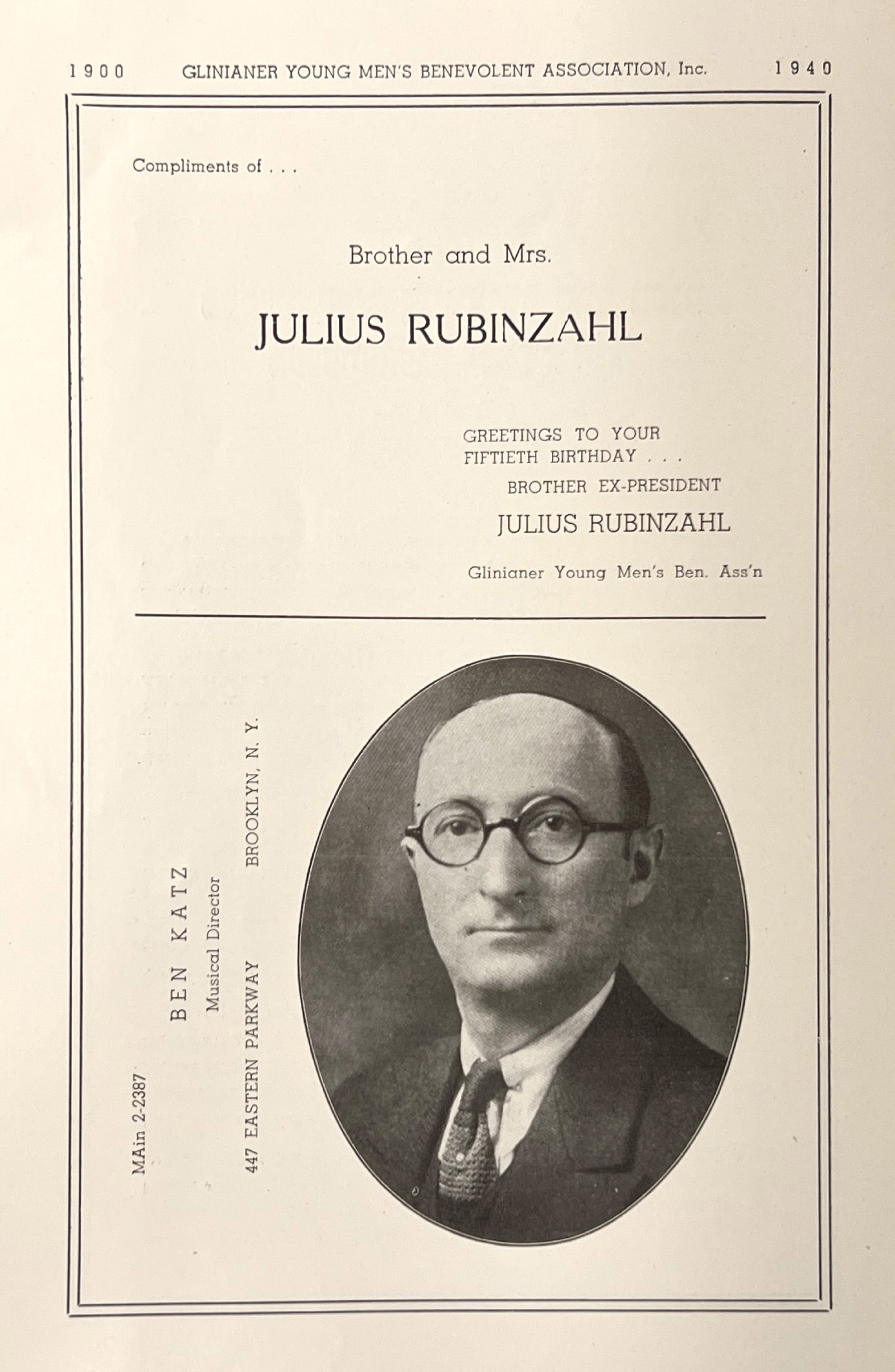Immigrant Jewish Musicians and New York Mutual Aid Societies, 1920s-1960s

|
Max Weinreich Fellowship Lecture in East European Arts, Music, and Theater
The Ruth and Joseph Kremen Memorial Fellowship Admission: Free |
As hundreds of thousands of Jewish immigrants arrived in New York City in the early twentieth century, they formed mutual aid societies, labor unions, political and cultural clubs to find stability and solidarity. Known as landsmanshaftn, many of these societies were formed around the towns that the immigrants were from, e.g. the Kolomear Friends Association, the Independent Bialystoker Brotherly Love Association No. 1, the Krementchuger Ladies Benevolent Association, and so on. Offering burial services, sick benefits, emergency loans; landsmanshaftn also organized attendance at funerals, marriages, and bar mitzvahs of members, and held regular social events. The most elaborate events were Installation Banquets for new leadership and Anniversary Banquets, which were typically held every five years from the founding of the organization. They also held dances, masked balls, charity banquets for overseas causes, cultural nights, and Purim balls, among others.
Nearly all of these events involved the hiring of a Jewish orchestra to perform live at the event. They played marches and anthems during ceremonial functions, classical or Yiddish theatre compositions for listening, and Jewish and popular American music for dancing. The musicians they hired were almost exclusively Jewish and were often, but not always, klezmer orchestras. If the landsmanshaft had a bandleader among its members, his orchestra was generally hired for everything. Otherwise, they would hire popular New York klezmer musicians like Naftule Brandwein, Dave Tarras, or Shloimke Beckerman.
In this lecture, Dan Carkner will give an overview of the relationships between immigrant Jewish musicians and Jewish mutual aid societies in New York City from the 1910s to the 1960s. It will examine how these societies recreated aspects of the traditional musical culture of their hometowns back in Eastern Europe with a turn over time to modern American practices.
About the Speaker
Dan Carkner is a historian and library technician from Vancouver, Canada. He has a BA in History from Simon Fraser University (2017) and an MA in History from the University of British Columbia (2020). His current research interests relate to immigrant klezmer musicians in New York from the 1890s to 1920s, including their biographies and family histories, their professional relationships, and their efforts to copyright their compositions with the U.S. Library of Congress during the interwar years. He was a Music Editorial Board member of the Klezmer Institute's Scholarly Editions Project (2023–24) and an active volunteer for the Institute's Kisegof-Makonovetsky Digital Manuscript Project (KMDMP). He is a member of the board at the Peretz Centre for Secular Jewish Culture in Vancouver and works at the Centre for Postsecondary Accessible Resources BC (CAPER-BC) in Vancouver.




